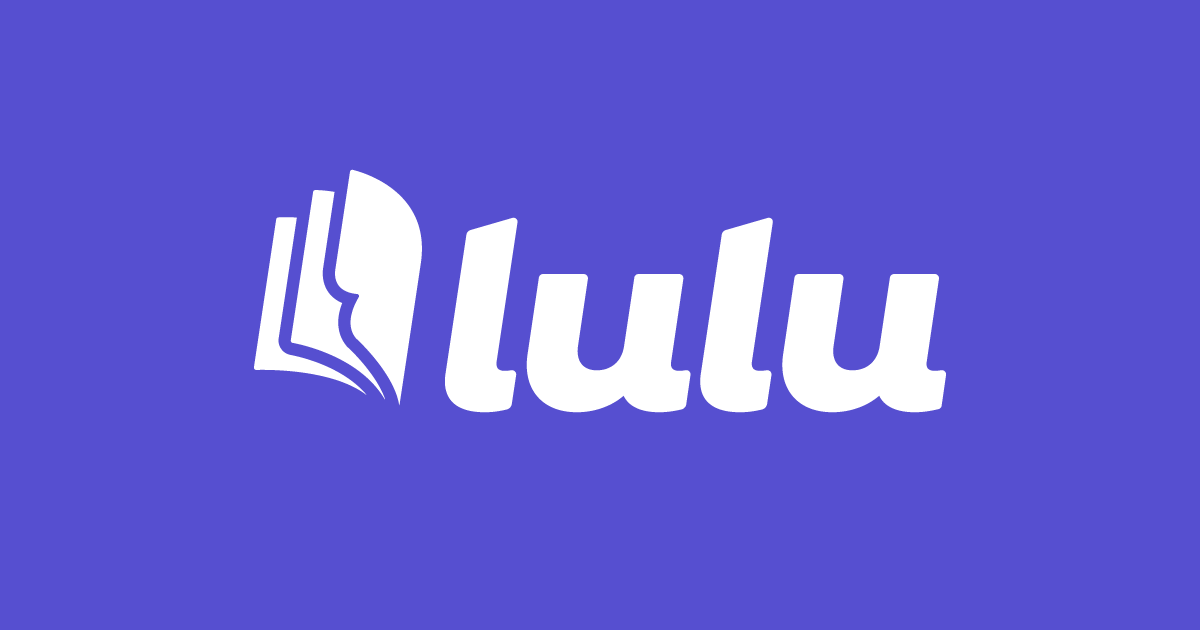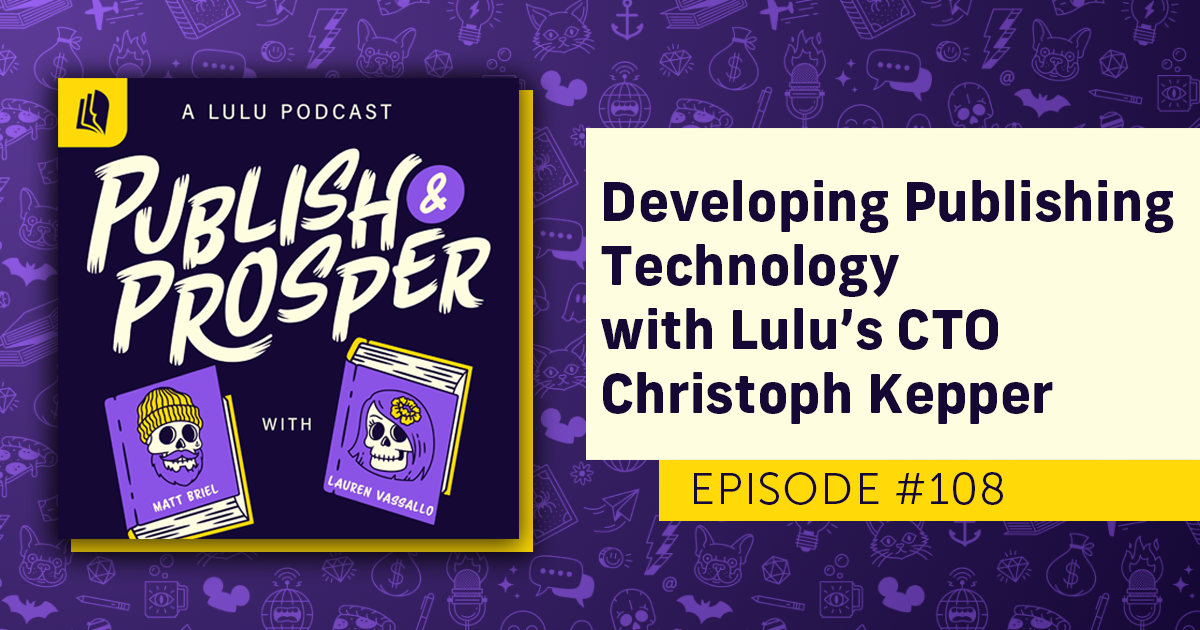How to Get Your Book Into Libraries
Libraries: a magical place filled with lifetimes of knowledge, microcosmic universes, the occasional eerie shadow, and most importantly, books.
Want to see your book on display in your favorite public library, or available for readers to check out anywhere, any time, right from their phones? Of course you do. Or at least, you should.
Luckily, I’m here to help. From understanding why libraries can be an amazing credibility and discoverability tool to learning how to prepare and pitch your book for library catalogs, let’s dig into how to get your book into libraries.
I normally encourage silence in the library, but if you like to listen more than you like to read, check out this episode of Publish & Prosper!
Why Libraries?
For those of us who have been daydreaming about writing a book for years, there’s no explanation necessary—of course, having your book on a library shelf is part of that vision.
But if you’re new to publishing, you might be wondering if it’s worth the effort. Who cares about library books? Do people even check out library books anymore? Wouldn’t it be better to sell my book?
Libraries Are Still Thriving
It’s true that foot traffic at public libraries has declined in recent years. While visits and check-outs are on the rise from post-pandemic numbers, they’re still nowhere near pre-2020 statistics (according to Publishers Weekly, with data from the Institute of Museum and Library Services annual Public Library Survey).
But visiting your local public library is only one way readers access library catalogs. Thanks to apps like Libby and Hoopla, readers can browse and borrow digital media without ever stepping foot in a building. And unlike print circulation, digital circulation is steadily rising year over year.
In fact, according to OverDrive (the digital media distributor responsible for, among other things, Libby), 2024 saw record-breaking numbers in worldwide digital library access, like:
- 739 million ebooks, audiobooks, and digital magazines, borrowed worldwide (up 17% over 2023)
- 9.2 million new Libby installs (up 1% over 2023)
- 118.9 million new users joining digital library systems globally (up 16% over 2023)
So while in-person library visits may be down, library patrons are still finding new books every single day.
Build Your Brand’s Credibility
Whether we admit it or not, we’re all susceptible to implicit bias. And while the stigma against self-published books is dramatically less now than it used to be, it still doesn’t hurt to have a few subconscious indicators to prove your book’s quality.
Those indicators might be visual elements like format and design, or content improvements like hiring a professional editor. They can also be social proof, like positive reader reviews, bestseller status, or other accolades.
Or maybe, getting your book vetted and accepted by some of the industry’s most influential gatekeepers: librarians and booksellers. When potential new readers, customers, or clients search your name and find your book listed in library collections that further proves your credibility, legitimacy, and authority.
Boost Your Book’s Discoverability
Discoverability in the age of AI search is an ever-evolving game. One thing we know? The more established, reputable sources associated with your book, the better. Which means having your book listed in digital library catalogs is a great way to give your search results a boost.
But discoverability in libraries is about way more than just playing the algorithm game, because libraries have librarians. Librarians aren’t just heavily influential in the publishing industry; they’re responsible for placing books into the hands of readers, students, educators, and even other librarians.
And in what Joanna Penn calls “the domino effect,” once your book has been accepted into one library catalog—once your credibility has been established—other libraries are generally more open to your work.
Inspire Future Book Sales
Library Pro for Readers: Read New Books for Free!
Library Con for Creators: People Are Reading Your Book for Free.
Except that library books do still generate revenue. Many readers are more likely to take a chance on an unknown author or a book they picked up on a whim if there’s no financial risk involved. Once they’ve discovered you and your amazing book, you can always turn those casual readers into dedicated super fans (and customers).

Get Your Book Ready for Libraries
Before you start mailing copies of your book to every library in the state (Spoiler Alert: don’t do that. Now or later.), we need to make sure that your book is both available to libraries and meets their requirements. Eliminate any possibility of your book being turned down for technical reasons, then we can look at how to maximize your acquisition pitch.
Make Sure Your Book is Available to Order
At Lulu, we often talk about three ways to sell your book: from your website with Lulu Direct, through the Lulu Bookstore, and on third-party retail sites through Retail Distribution. To understand how libraries get their books, there are a couple of things you need to understand about that third option, retail distribution.
Retail Distribution
Online retailers, brick & mortar bookstores, and libraries all get their books the same way: from wholesale book distributors. When you choose retail distribution as a sales option, it’s made available to retailers like Amazon and Bookshop.org by way of distributors like Ingram Content Group, Baker & Taylor, and OverDrive.
Some bookstores will also get their inventory directly from publishers or authors. But libraries pretty much exclusively get their inventory from distributors.
Which means that if you want libraries to acquire print or digital copies of your book, it has to be available through retail distribution.

Price and Returnability
When customers buy your book, whether they’re buying from you, the Lulu Bookstore, or a third-party retailer, they pay the list price of the book. The list price, set by the author, is the production cost of your book plus whatever profit you hope to make from each sale.
Third-party retailers do not order books at list price. Instead, they pay distributors or publishers the wholesale price, discounted by a certain percentage from the list price, and charge customers the list price.
Most libraries and bookstores will not acquire books that have less than a 40% wholesale discount. They also expect books to be returnable, and may choose not to stock a book that cannot be returned to the wholesaler or publisher.
Make Sure Your Book is Library-Approved
Whether you’re aiming to get your print book on library shelves, your ebook or audiobook in digital collections, or both, there are a few requirements you and your content need to meet.
Note that some of these details, like your book metadata and certain print book formats, are also requirements for retail distribution.
Metadata
Metadata is descriptive information about and attached to your book, details like your title, genre, copyright, etc. Your metadata is essential for your book’s discoverability and distribution eligibility, and will also be an important part of your pitch for library acquisition. Take the time to make sure your metadata is accurate and readily available to you.
Learn more about book metadata in this blog post, or this episode of Publish & Prosper.
Library of Congress Control Numbers and MARC Records
Registering your book with the Library of Congress is a great way to secure your copyright and protect your intellectual property. While registering your copyright does not directly impact your book’s chances of being accepted into a library collection, it may indirectly help.
Published books registered with the Library of Congress are assigned a LOC Control Number, or an LCCN. Public libraries, school libraries, academic libraries, and specialized libraries can all access the LOC database and review registered work.
An LCCN will also automatically generate a MARC, or Machine-Readable Cataloguing, record. This specifically allows libraries to easily import all your book’s metadata directly into their system, and streamlines the acquisition process.
Having an LCCN and MARC record readily available and included with your book metadata does two things for you. First, it implies your credibility and professionalism as a published author. Second, it makes it easier for librarians to review your pitch.
Print Book Formats
Lulu offers a wide range of different trim sizes and binding types for different print book projects. However, not all book formats are eligible for retail distribution—which means not all formats are eligible for library circulation.
The Lulu pricing calculator does more than just show you all the different ways you can design your print book; it can also tell you which formats are and are not eligible for distribution. Make sure your book is available! If it’s not, consider publishing a library edition that meets the necessary industry standards.
Even if your book is eligible for distribution, it might not meet library standards. To maximize your chance of having your print book accepted, consider these design details:
- Binding Type: Libraries tend to favor Casewrap Hardcovers and Perfect Bound Paperbacks over any other binding type. Remember that Coil and Saddle Stitch books are not eligible for retail distribution.
- Trim Size: Stick to common industry sizes for your genre; if your book is too big or small to fit on the appropriate section shelving, they may choose not to add it to their collection.
- Interior Formatting: Your book’s interior should meet industry standards and expectations when it comes to details like your front and back matter, page layout, font and line spacing, etc.
- Cover Design: A well-designed front cover is important, but it’s also essential that you don’t overlook the back cover and spine. Your back cover should include details like your book description, ISBN and scannable barcode, and book genre. Your spine should include your title and author name.
Get Your Book Into Libraries
It’s estimated that roughly 4 million new books are published annually. That’s almost 11,000 books a day. Librarians are pretty amazing, but even the best of them can’t be aware of every single new book published. Now that we know your book is available and eligible for libraries around the country, it’s time to let them know!
Generate Buzz About Your Book
There are a few different ways that a book might catch a librarian’s attention, but they all really boil down to the same thing: buzz. So how can you generate buzz about your book?
Ask For a Little Help From Your Fans
One of the most straightforward ways to get your book added to a library catalog is simple: ask for it.
Whether it’s a suggestion box at checkout, a form on a website, or a quick button click on Libby, most libraries make it easy for patrons to request new books be added to circulation.
A single request might not make much of a difference. But there’s absolutely nothing stopping you from asking your friends, your family, and your fans to submit a request to have your book added to a particular library. Or their local library, if you’re aiming for a wider reach. Or hey, why not both?
Put Your Book Front and Center Where Librarians Are
Like bookstores, acquisition librarians often rely on industry outlets like Publishers Weekly, Library Journal, Kirkus, etc., for new, noteworthy, and upcoming books and trends.
And okay, realistically you’re probably not getting a centerfold feature interview about you and your indie book. But if you’re serious about wanting your book in libraries or bookstores, you should pitch your book for trade reviews.
Unlike reader reviews, which are often considered unreliable, a professional review from a reputable outlet like BookLife (Publishers Weekly) or Kirkus is an instant credibility boost to a librarian or bookseller.
Best-case scenario, a librarian comes across your book’s review and acquires the book for their library without you even having to reach out. But even if they don’t, you can now add that review to all future library or bookstore pitches.
Pitch Yourself and Your Book to Libraries
If all else fails, or if you’re a PR and sales pitch expert and this was your very first option, there is always the tried and true method: manually pitching your book to librarians for acquisition consideration. Let’s do it.
Do Your Homework
Before you start any outreach, do some research.
Your library may already have a clearly defined process for submitting a book for consideration, or a dedicated acquisitions librarian. If not, you may find recommendations from other local authors.
If you can’t find anything online, consider reaching out and asking for guidance or more information before sending your full pitch. At the very least, it will increase your chances of reaching out to the right librarian.
Keep in mind that you’ll have to contact every library you want to acquire your book separately, and that each library might have a different submission process. Assuming, instead of taking the time to look up the preferred process, is only going to make you look bad.
Perfect Your Pitch
Your pitch should be straightforward and professional. While there are many times in your book promotion efforts that you, the author, are the main selling point, in this particular case, your book is the primary focus.
You’ll want to highlight some key parts of your metadata, then include a quick elevator pitch of your book, notable trade reviews or accolades for the book, and a sell sheet.
Here’s a rough outline for your pitch email:
- Intro
- Identify yourself, your book title and genre, and why you’re reaching out
- Key Details
- Title
- Author
- Publication Date
- Publisher
- Available Formats
- ISBN(s)
- Distribution Availability
- LCCN/MARC Record
- Book Elevator Pitch
- Not your full book description, but a 1-2 sentence pitch designed to make them want to know more
- Trade Reviews, Awards, Accolades
- Keep it brief, highlights over full-length quotes, etc.
- Sell Sheet
- Attach a PDF sell sheet, but be sure to mention it. Offer to send any additional information at their request, and thanks
A sell sheet is a quick reference guide to your book, detailing the essential facts. Think of it like a resume; it should be neatly formatted, easy to read, and contained to one page.
Your sell sheet should include:
- Book Cover Image
- Use a high-resolution image of your front cover art, prominently at the top left or top center of the sell sheet page
- Book Information
- Title
- Author
- Publication Date
- Publisher
- Available Formats
- ISBN(s)
- Page Count
- List Price
- Distribution Availability
- LCCN/MARC Record
- Book Description
- A shortened version of the full book description included on your cover or product pages. Highlight the hook, unique selling points, and main appeal to the audience
- Notable Reviews
- Trade Reviews, accolades or awards, bestseller status, prominent endorsement, etc.
- About the Author
- Brief author bio that focuses on salient details like: local author or book connection to the area, community connection, proof of expertise/authority, etc.
- Ordering Information
- Make it clear how the library can order your book. Include your distributor (Ingram Content Group, OverDrive, etc.), wholesale price/discount, and returnability status
- Author Contact Details
- Name, email, website, preferred method of contact
Yes, some of the data on your sell sheet overlaps with your pitch. The pitch highlights the most important information, but the sell sheet needs to be able to stand alone without the supplemental details included in your email.

Your Free Lulu Account
Create a Lulu Account today to print and publish your book for readers all around the world
Start with Your Local Library
The easiest library to get your book accepted into is your own. While your pitch should be factual and focused more on your book than on you, the fact that you have a local or personal connection to the library is definitely still a selling point!
Be sure to mention that you’re a local author, and include any relevant or notable connections to the community. Maybe you’re active in a community organization that has worked with the library before, or your business is well-known in the area, or you’ve previously hosted a successful book signing at your local indie bookstore.
If you’re at all interested in public speaking, consider pitching yourself for an author talk, reading, book club Q&A, or any other relevant programming. Not only is that a great way to boost your chances of having your book added to library circulation, but it’s also a great way to build your public speaking resume.
And of course, don’t forget about the domino effect. Once you’ve succeeded in getting your book shelved in your local library—I know you will—it’ll be that much easier to reach out to the next closest branch. And the next.
Either way, you’re one step closer to sharing your book with readers all around the world!






